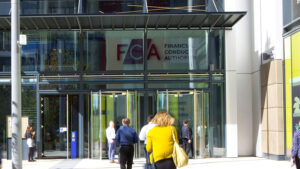Aberdeen Standard Investments is reopening two of its suspended property funds worth £2.5bn after shoring up liquidity during September.
The £1.6bn Standard Life Investments UK Real Estate fund and £974m Aberdeen UK Property fund, both managed by George Shaw (pictured), will resume dealing on 16 November, according to a press release.
The entire Investment Association UK Direct Property sector was forced to suspend in March as the coronavirus pandemic prompted independent valuers to adopt material uncertainty clauses on their assessments.
New Financial Conduct Authority rules required funds to suspend if there were valuation uncertainties on more than 20% of a fund’s assets and the property fund sector decided to abide by this even though the rules did not come into effect until September.
By then, the Royal Institute of Chartered Surveyors announced the lifting of the material uncertainty clause across virtually all real estate assets. Fund prices were little moved at the end of September when pricing without the material uncertainty clause was revealed.
IA UK Direct Property fund performance over one year

Source: FE Fundinfo (retrieved 19 October 2020)
Liquidity positions in ASI property funds have been improving
Both ASI funds have shored up liquidity during September with an Aberdeen Standard Investments spokesperson confirming cash levels on SLI UK Real Estate were 25% at the end of the month, while on Aberdeen UK Property they were 22.3%. That compares to 22.7% and 18.3% respectively, according to their August factsheets.
Fairview Investing consultant Ben Yearsley reckoned UK property funds would need at least 20% cash to reopen and ideally closer to 25%.
The Threadneedle UK Property fund reopened on 17 September having held 19.8% at the end of August, according to its August factsheet. The LGIM UK Property fund reopened last week, on 13 October, having revealed its intention to do so in mid September. It had one of the highest cash levels in the sector at 29.3% beaten only by Canlife UK Property, which held 29.5% in cash.
The £3.3bn SJP Property strategy, which has a more captive distribution model than the other UK direct property funds, announced it would reopen on 9 September. Its cash levels at the end of the month were 14.6%.
Yearsley said the investor profile within a fund was an important consideration for authorised corporate directors considering reopening, alongside liquidity levels. “For example, you might have three big investors representing 60% of the fund who have committed to staying in.”
Funds could suspend again shortly
Nevertheless, he thought investors could soon face another round of suspensions.
“The reality is, I think some, if not many, of these funds will close again because they’ll be down to sub-10% liquidity.
“They’ve got no choice but to reopen; if you’ve got 20% plus in cash you’re doing your investors a disservice by not opening. I can’t imagine these funds will have any inflows at all at the moment.”
The £426m Aegon Property Income fund currently has the lowest levels of cash in the sector with 7.5%, according to FE Fundinfo. The £2.1bn M&G Property Portfolio, which suspended in December last year due to liquidity problems, held 10.1%.
In June BMO Global Asset Management lifted the suspension on its Property Growth & Income portfolio. The £490.4m fund, managed by Marcus Phayre-Mudge and George Gay, sits in the IA UK Property Other sector and held just 28.8% held in direct property.
See also: How will UK property fund pricing react now valuation uncertainty has been lifted?







